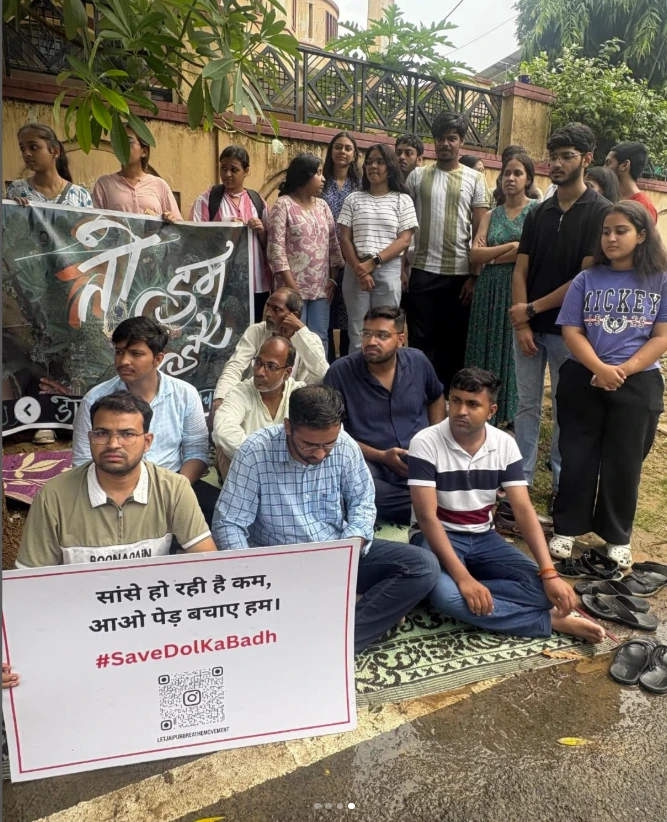On one hand, Prime Minister Narendra Modi endorses plantation drives, and on World Environment Day launched the ‘Ek Ped Maa Ke Naam’ initiative — a call for every citizen to plant a tree in their mother’s name. On the other hand, in the heart of Rajasthan’s capital, a lush green patch of life is silently being wiped out — in the name of development.
The irony couldn’t be starker.
In Jaipur, a sprawling 100-acre land known as ‘Dhol Ka Badh’ — a haven of ecological richness — is being bulldozed to make way for the ambitious PM Unity Mall project. Over 2,500 native trees like Rohida, Aldu, Neem, Khejri, and numerous medicinal shrubs have either been cut or are under imminent threat. The green patch also shelters over 85 species of birds including the Golden Oriole, Parakeets, and Alexandrine Parrots, and is home to small mammals and reptiles like mongooses and snakes.
Once teeming with bird calls and the rustling of leaves, Dhol Ka Badh is now echoing with the noise of machines and the despair of protestors.
A Battle for Biodiversity
The story began in 2021, when the then-Congress government announced a Fintech Park project on this strategically located land near the airport. Protests erupted. Activists, residents, students, and ecologists raised their voices — and for a while, they won. The project was put on hold.
However, when the BJP came to power, the location was repurposed for an even more extensive plan — the PM Unity Mall, Trade Fair Pavilion, and Convention Centre. The scale became bigger, and so did the threat.
Despite continuous protests over the past three months, and repeated appeals to authorities, the construction has resumed. More than 200 trees have already been felled.
Voices from the Ground
“We documented everything,” said Kavita Srivastava, President of PUCL. “The flora, the medicinal herbs, the richness of the bird fauna — more than 85 species. In 2023, we fought and stopped the Fintech project. Now, with the BJP government, the stakes are higher and the biodiversity is being erased.”
She adds, “This is RIICO’s (Rajasthan State Industrial Development and Investment Corporation Ltd) land, but we proposed to convert it into a biodiversity park. Our pleas fell on deaf ears. Police detained us, FIRs were filed. Even our alternative development proposal was ignored. What’s worse, authorities don’t even count native shrubs and saplings as trees. There’s a shocking lack of ecological understanding.”
Development at What Cost?
The ‘Ek Ped Maa Ke Naam’ campaign encourages Indians to cherish and protect nature — yet here is an area naturally nurtured over years, being destroyed in days. The land at Dhol Ka Badh wasn’t just green; it was a micro-ecosystem evolved through years of natural regeneration and community care.
The decision to replace this unique ecological zone with concrete raises a larger question: Can development and ecology not co-exist?
As construction vehicles roar through the fallen branches and scattered nests, the silence from policymakers is deafening. Protestors may not be able to stop the machinery — but they continue to resist with hope, demanding accountability, demanding dignity for nature.
“Let Dhol Ka Badh Live”
Activists and concerned citizens have united under this rallying cry. Their demand is simple: recognize and preserve this unique biodiversity before it’s too late.
As the country pledges to green the Aravallis, let us not forget: conservation begins at home — and in this case, at Dhol Ka Badh.


